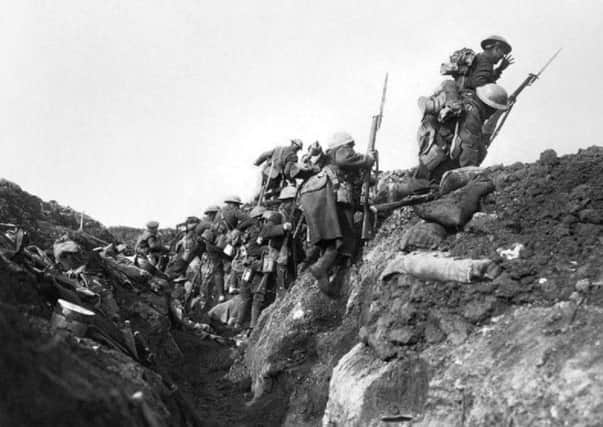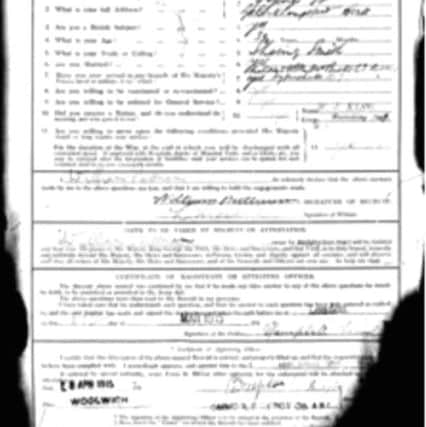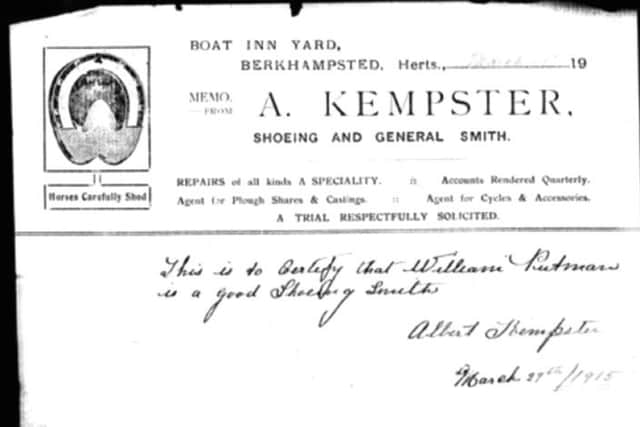HERITAGE: Shoesmith settles in town as war looms


Now, we can bring you details of the First World War soldier from Berkhamsted on whom the book is based.
William James Puttnam was born in July 1870 in Walton green, Walton, Aylesbury, Buckinghamshire to Thomas George and Emily Susan Puttnam.
Advertisement
Hide AdAdvertisement
Hide AdWilliam followed in his father’s footsteps and became a farrier – a shoeing smith. Growing up in the Aylesbury area William started work - as was usual at that time - at the age of 12.


Initially he worked with his father to learn the trade and then later on began to move around himself to find work.
He also spent a short period in the Army with the Ox & Bucks Light Infantry until he finally settled down and married Amy Louise Welsh on Christmas Day, 1897.
The pair then eventually settled in Berkhampstead – as it was then spelt, where they brought their young family up in a small terraced house at 9 George Street.
Advertisement
Hide AdAdvertisement
Hide AdThey had a total of six children who were all brought up and went to school in the town.


William worked for A. Kempster at the smithy at Boat Inn Yard, Berkhampsted (top of George
Street). He then went on to work at W. Nash, Shoeing Smith’s, High Street, Berkhampsted, prior to enlisting in the army on March 29, 1915.
William was not a young man when he enlisted. He was nearly 45 but he lied about his age and said that he was 39 to ensure he was accepted.
Advertisement
Hide AdAdvertisement
Hide AdHe was accepted for active service and was taken on as a Shoeing Smith in the Royal Field Artillery (RFA). He had to provide proof of his experience as a shoeing smith in order to secure his enhanced pay of 5 shillings a day.
He was eventually posted overseas to France on August 27, 1915, with the 88th Battalion RFA.
He was promoted to Corporal on the January 24, 1916 .
William fought through all of the major western theatre battles of the First World War including the big push on the Somme in July 1916 and finally found himself in the middle of the big German advance in March 1918 – named Operation Michael by the Germans.
> Pick up a copy the Gazette on Wednesday to read about Cpl Puttnam’s wartime experiences.